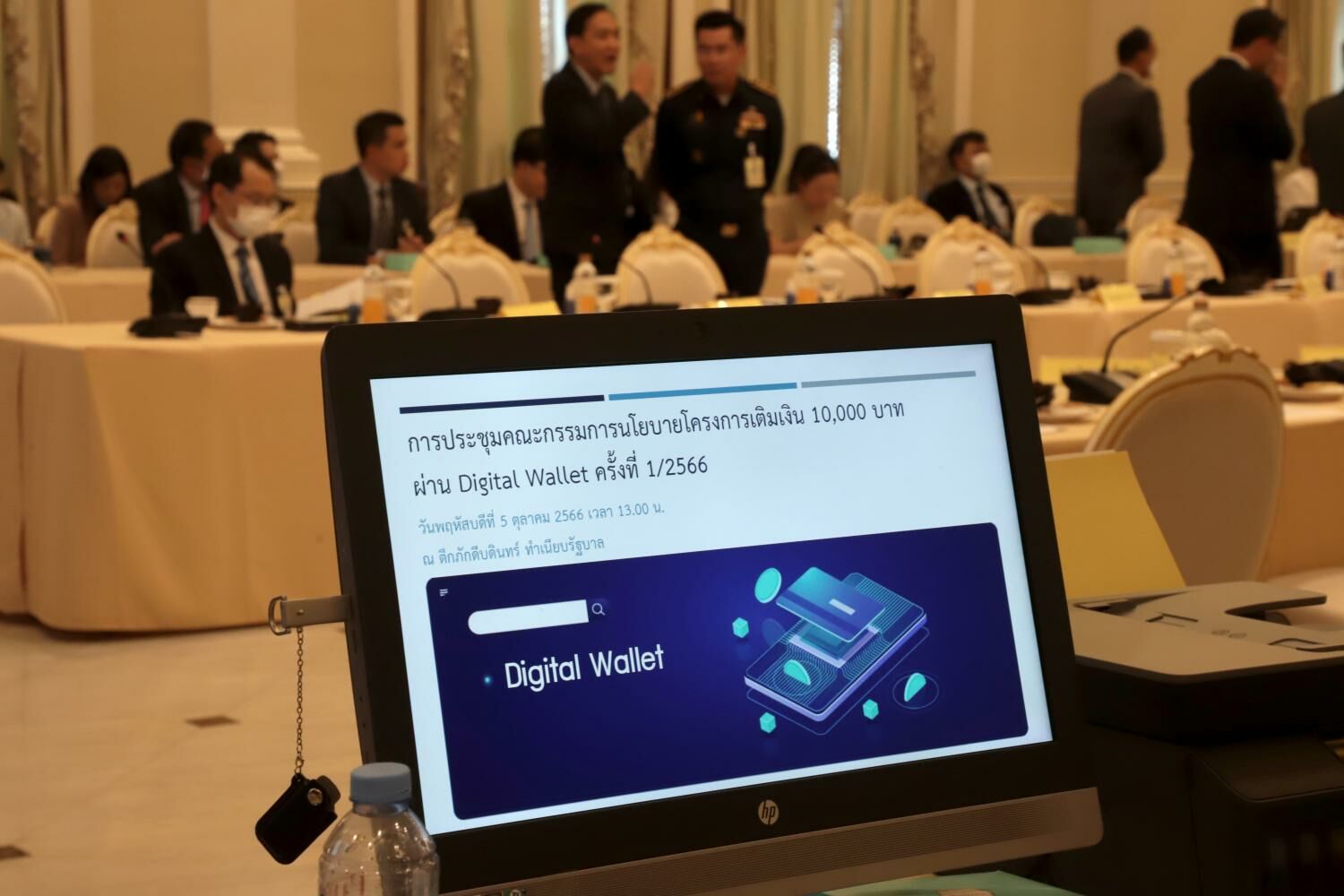Thai PM denies hold up with digital wallet plan

The government remains undeterred as it stands firm on its 10,000-baht digital wallet scheme, scheduled for a May launch, despite legal challenges.
Prime Minister Srettha Thavisin promised a consensus after seeking opinions from key players.
“We stand by the original timeframe.”
The Council of State recently weighed in on the legality of the government’s plan to borrow a hefty 500 billion baht to finance the scheme.
“The Council of State did not say whether the government’s loan bill to fund the handout is legally viable. We have to listen to various opinions.”
However, critics demanding transparency on the Council’s opinions were met with a cryptic response.
The 61 year old Thai PM insisted that the opinions would be revealed at an appropriate time, adding to the intrigue surrounding the controversial financial manoeuvre.
Deputy Finance Minister Julapun Amornvivat clarified the Council’s role, stating they provided legal opinions and held no authority to decide on the government’s ability to seek loans.
“The government is ready to listen and act in line with the law.”
The Council’s secretary-general, Pakorn Nilprapunt, emphasised that their role was advisory, citing the 2018 State Fiscal and Financial Discipline Act as the basis for their evaluation.
“The council only gave opinions on whether such a bill could be issued.”
Legal hurdles
Notably, the law stipulates specific conditions under which the government can take loans, invoking Section 53. This provision allows loans for urgent action to address critical problems where annual appropriations cannot be fixed promptly, reported Bangkok Post.
Calls for transparency from critics like Jurin Laksanawisit, a Democrat Party MP, grew louder. Laksanawisit urged the government to unveil details.
“If any problems occur, the government must take responsibility.”
Senator Tuang Antachai questioned the necessity of the digital wallet scheme, challenging the government’s economic crisis narrative. He hinted at a potential legal showdown.
“If the government insists on issuing a loan bill to fund the scheme, the Constitutional Court would be asked to rule on its legality.”
The digital money scheme, a flagship election promise of the ruling Pheu Thai Party, is set to benefit Thais aged 16 and older earning less than 70,000 baht monthly, with under 500,000 baht in bank deposits. However, stringent restrictions dictate the funds’ use, excluding online purchases, tobacco, alcohol, and even cash vouchers and valuables.
Moreover, the money must be spent within the recipient’s registered district. As the nation braces for this financial experiment, the contentious rollout promises to make headlines well beyond its May debut.
Latest Thailand News
Follow The Thaiger on Google News:


























